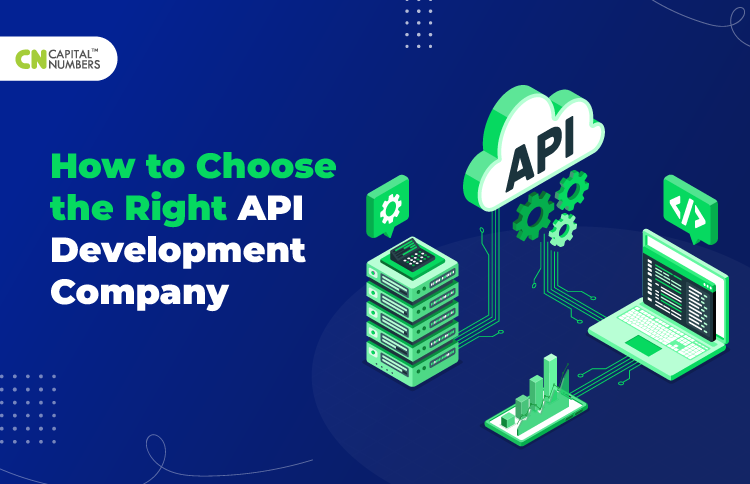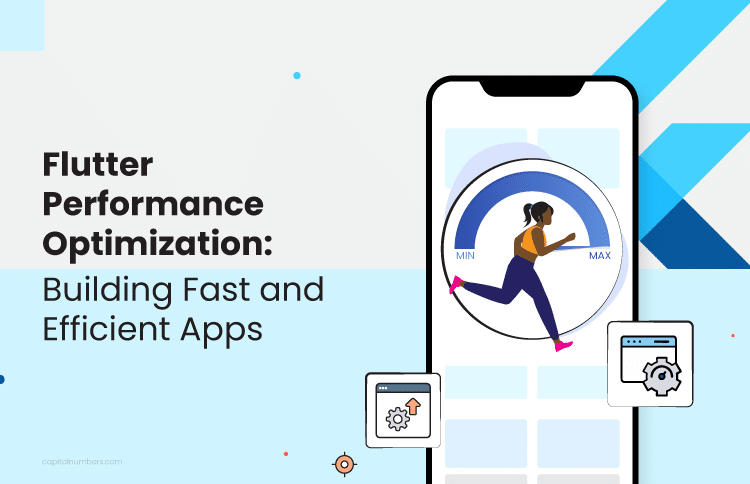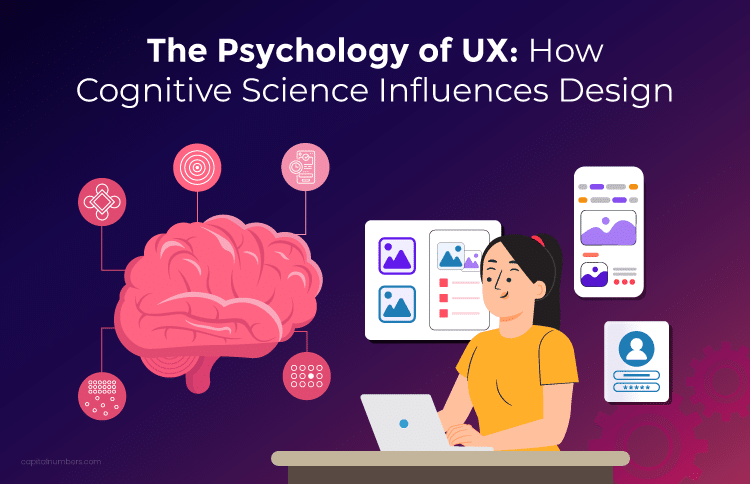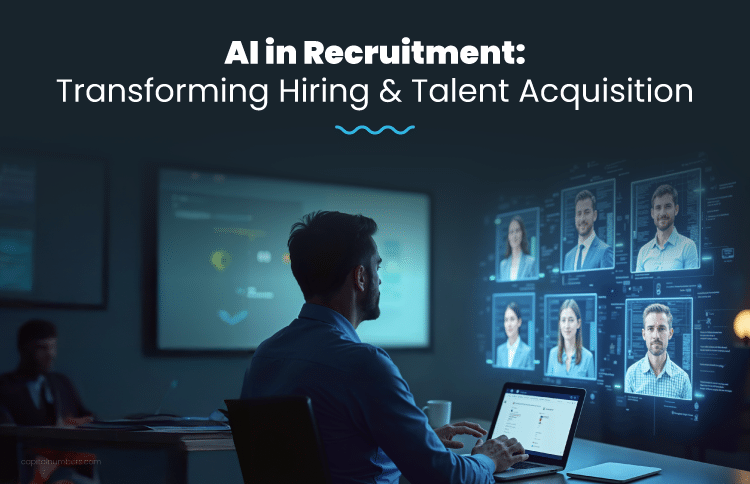How to Choose the Right API Development Company
Table of Contents
In our hyperconnected world, data holds great value, and APIs are vital tools to use its potential. These ‘application programming interfaces’ function as digital bridges, seamlessly connecting services and functionalities across diverse systems and platforms. They enable smooth user experiences, spark innovation, and drive the growth of countless businesses.
However, the API landscape is vast and intricate. Choosing the ideal development service provider isn’t easy. Making the wrong choice can lead to extra costs, delays, and even a product that doesn’t meet standards, potentially harming your brand. It’s important to know what sets a great API service provider apart – their technical skills, understanding of your industry, commitment to keeping data safe, and ability to grow with your business are all key factors. This comprehensive guide serves as your map through the intricate world of API development services, helping you find the perfect partner for your journey. Let’s dive in.
Types of API Development Services
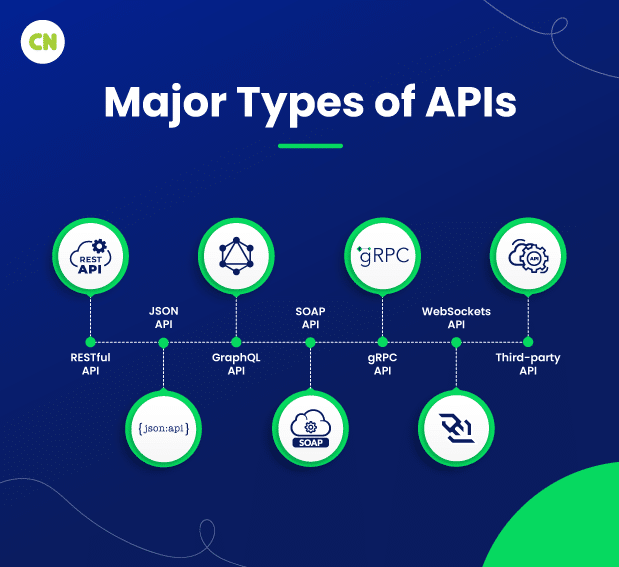
When considering API development services, it’s crucial to understand the options available to meet your project’s specific needs. Let’s explore them in detail to make an informed decision.
RESTful API Development
RESTful APIs follow the principles of Representational State Transfer (REST) and use HTTP requests to interact with resources. They are known for their simplicity and scalability, making them popular for web services and mobile app backends.
RESTful APIs are stateless, meaning each request from a client to a server should contain all the information needed to understand and fulfill the request. They return data in formats like JSON or XML, making them widely compatible with various programming languages and platforms.
JSON API Development
A JSON (JavaScript Object Notation) API is a simple and widely used way to send and receive data between applications. It uses a human-readable format that’s easy to understand and work with. Developers use JSON APIs to communicate seamlessly between various software components, web services, or mobile apps.
This approach offers simplicity, flexibility, and compatibility with multiple programming languages, making it a popular choice for building APIs. JSON APIs are crucial in modern software development, facilitating efficient data transfer and integration across diverse systems.
GraphQL API Development
GraphQL is a modern approach to API development that allows clients to request precisely the data they need, eliminating over-fetching or under-fetching of data. Clients can define the structure of the response, enabling more efficient data retrieval.
GraphQL APIs are highly flexible and suitable for applications with complex data requirements, such as social media platforms or content-rich websites. This technology has gained popularity for its ability to optimize data fetching and reduce unnecessary network requests.
SOAP API Development
SOAP (Simple Object Access Protocol) APIs are known for their strict standards and strong typing. They use XML as the message format and can operate over protocols like HTTP or SMTP. SOAP APIs are commonly used in enterprise-level applications and scenarios where a high level of security and reliability is vital.
They provide a well-defined message structure, making them suitable for applications that require strict adherence to messaging standards and where interoperability between different systems is crucial.
gRPC API Development
gRPC is an efficient and high-performance framework for API development. It uses protocol buffers for defining service contracts and messages, providing a compact and fast serialization format. With gRPC, developers can create APIs that offer strong typing and automatic code generation in multiple programming languages.
This makes it a great choice for building microservices, real-time applications, or any system where speed and efficiency are vital. Its ability to support bidirectional streaming and multiplexing makes it suitable for various use cases, such as real-time communication and large-scale data transfer.
WebSockets API Development
WebSockets offer bidirectional, full-duplex communication channels over a single TCP connection. They are designed for real-time client communication (typically web browsers) and servers. WebSockets enable instant updates and are often used in applications where low-latency, real-time interactions are essential.
Examples include chat applications, online gaming, and collaborative tools. WebSockets provide a persistent connection that allows data to flow both ways, making them ideal for interactive and dynamic applications.
Third-party API Integration
Third-party APIs are provided by external service providers and offer a wide range of functionalities that developers can integrate into their applications. These APIs allow applications to access external services and data without building them from scratch.
Examples of third-party APIs include social media APIs (e.g., Facebook Graph API), payment gateway APIs (e.g., PayPal), geolocation APIs (e.g., Google Maps API), and many others. Integration with third-party APIs expands an application’s capabilities, enhances user experiences, and saves development time and effort.
These API development services cater to various use cases and project requirements. The choice depends on factors like data complexity, real-time needs, and the specific goals of your application.
Benefits of Outsourcing API Development Services
Outsourcing API development services offers several benefits for businesses, including:
Cost-efficiency
Outsourcing API development can be cost-effective, eliminating the need to hire and train in-house developers. You can leverage the expertise of external teams without the overhead costs, making it a budget-friendly option. Also, outsourcing API development allows you to scale resources as needed, optimizing expenses while maintaining quality.
Access to a pool of skilled developers
When you outsource API development, you gain access to a diverse talent pool with specialized skills. These skilled developers bring extensive experience and knowledge, ensuring that your API project benefits from best practices and the latest industry insights. This access to expertise can be valuable for addressing complex API security concerns effectively.
Faster time to market
Outsourcing API development results in faster project delivery. Experienced external teams can streamline the development process, reducing time-to-market. This agility is crucial for efficient project execution.
Focus on core competencies
By outsourcing API development, your organization can concentrate on its core competencies and strategic goals. Delegating API development tasks to experts ensures you can allocate your resources and attention to areas where your business excels. This approach allows you to maintain your competitive edge while leaving the technical intricacies to capable hands.
Key Considerations for Choosing an API Development Company
If you’re wondering what are the things to keep in mind when looking for an outsourcing partner, consider the following:
Expertise and Experience
When evaluating a potential provider, closely examine their expertise and experience. It’s not just about checking their portfolio. Assess whether they have a proven track record of delivering API solutions that match your industry and specific requirements. Ask for client references and testimonials to check their reputation within your sector. Opt for a provider with industry-specific expertise, as they’re better equipped to understand your unique challenges and opportunities. It can lead to more effective API development tailored to your needs.
Technology Stack
Your project’s success relies on seamless integration, so ensure compatibility with your tech stack. Ask about the technologies and programming languages the provider is proficient in. Verify that they support modern API standards relevant to your project. Opt for an API development services provider whose technology stack aligns with your own to streamline development, integration, and ongoing maintenance, making your life easier.
Scalability and Performance
Think about the future as your user base grows. Inquire about the provider’s ability to handle increasing API traffic as your application gains popularity. Besides scalability, focus on their strategies for ensuring low latency and high availability. You need a provider with a robust infrastructure and performance optimization tactics to deliver a responsive and reliable API to your users as you scale.
Security Measures
Security should be a top concern. Ask about the provider’s approach to safeguarding your API and data. Ensure they follow API security best practices, including thorough data encryption, robust authentication mechanisms, and stringent authorization protocols. Strong security measures protect against data breaches, unauthorized access, and other threats.
Customization and Flexibility
Projects evolve, and so do your API requirements. Choose an offshore development provider willing and able to offer customization and flexibility in their solutions. They should adapt APIs to your unique needs, even as those needs change over time. An adaptable partner will assist you in managing shifting project demands, including those of the next generation of API development, ensuring that your API continues to align with your objectives effectively.
Cost and Pricing Models
One of the key considerations when choosing an API development services provider is their cost and pricing models. Look for a provider offering transparent pricing structures, ensuring you understand the costs involved. Avoid providers that hide fees or have unclear pricing policies, which can lead to unexpected expenses. A transparent pricing model allows you to budget effectively for your API development project and ensures that you receive the services you expect without any hidden costs.
How to Evaluate an API Development Company
With so many outsourcing providers offering API development services, finding the right one can be difficult for you. To make a wise choice, keep the following in mind:
Conduct Interviews
You can start by conducting interviews with potential providers. It allows you to assess their expertise, experience, and problem-solving abilities. During these discussions, ask about their approach to API development, understanding of your project’s goals, and proposed solutions. Make sure to inquire about their experience in handling projects similar to yours.
Check Communication and Collaboration Skills
When looking for an API development provider, pay close attention to their communication skills, responsiveness, and collaboration ability. You need a provider who can seamlessly integrate with your in-house team, understand your project’s API-specific requirements, and maintain open communication channels throughout development. It ensures a smooth API development journey and successful project outcomes.
Check API-specific Client References and Portfolios
Assess their API-specific experience by reviewing past API projects they’ve undertaken. Check their portfolio to find out the APIs they’ve successfully developed, especially those with functionalities similar to your project demands. It helps ensure they have the necessary expertise for your API.
Ask About API Versioning and Long-term Maintenance
Ask about their approach to API versioning and how they handle backward compatibility. APIs evolve, and you’ll want a provider capable of managing version changes without disrupting existing users. Discuss their strategies for long-term API maintenance, including updates, bug fixes, and security patches.
Final Thoughts
Choosing the right API development company is a strategic decision. Whether you’re considering feature-rich or serverless API development, the right partner will go above and beyond to ensure your requirements are met within your timelines. This choice is a step towards innovation, operational efficiency, and market leadership.
It is also about building a relationship that goes beyond the immediate project. It’s about partnering with a team that understands your current needs and is equipped to support your future growth. This partnership is your gateway to meeting and exceeding your digital aspirations. It ensures that your APIs are robust, scalable, and innovative assets driving your business’ success in the changing digital landscape.

